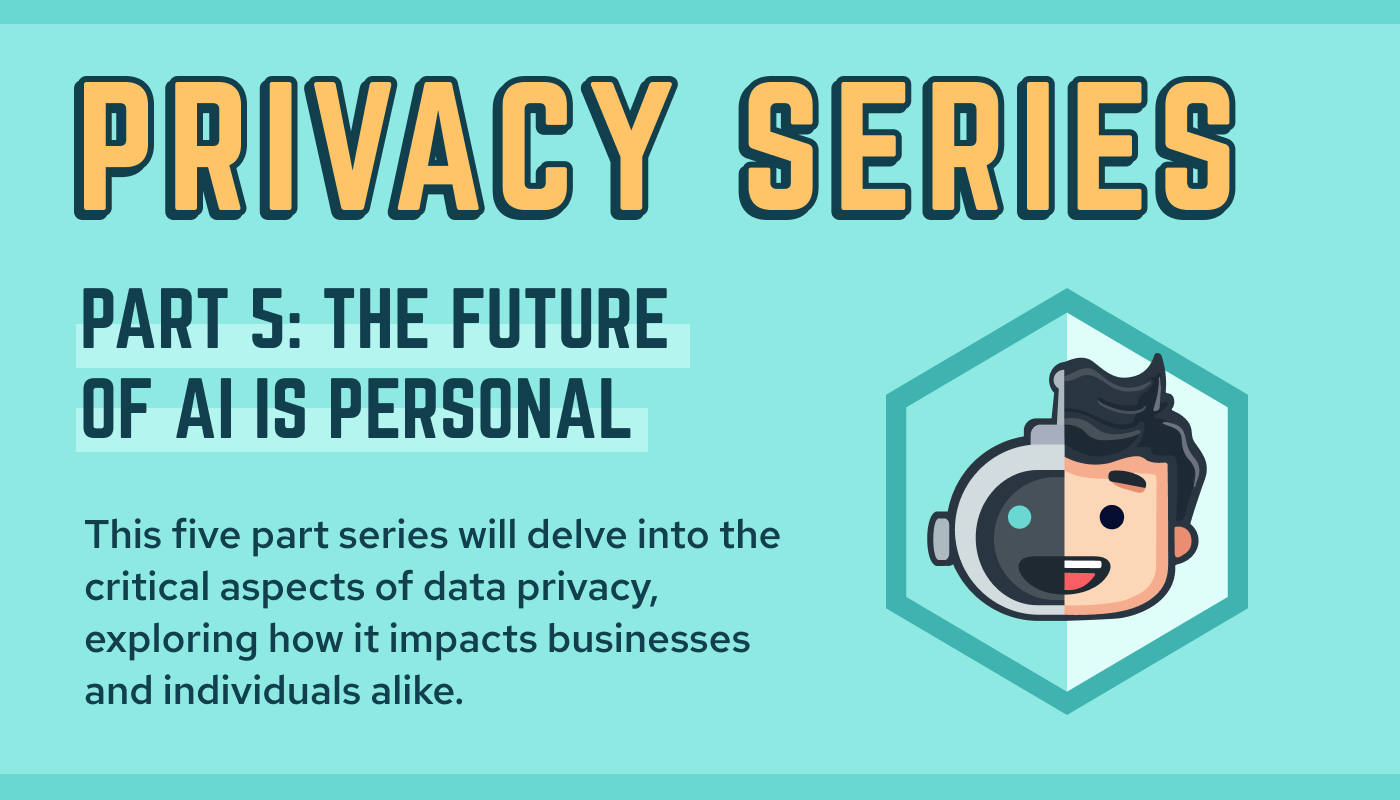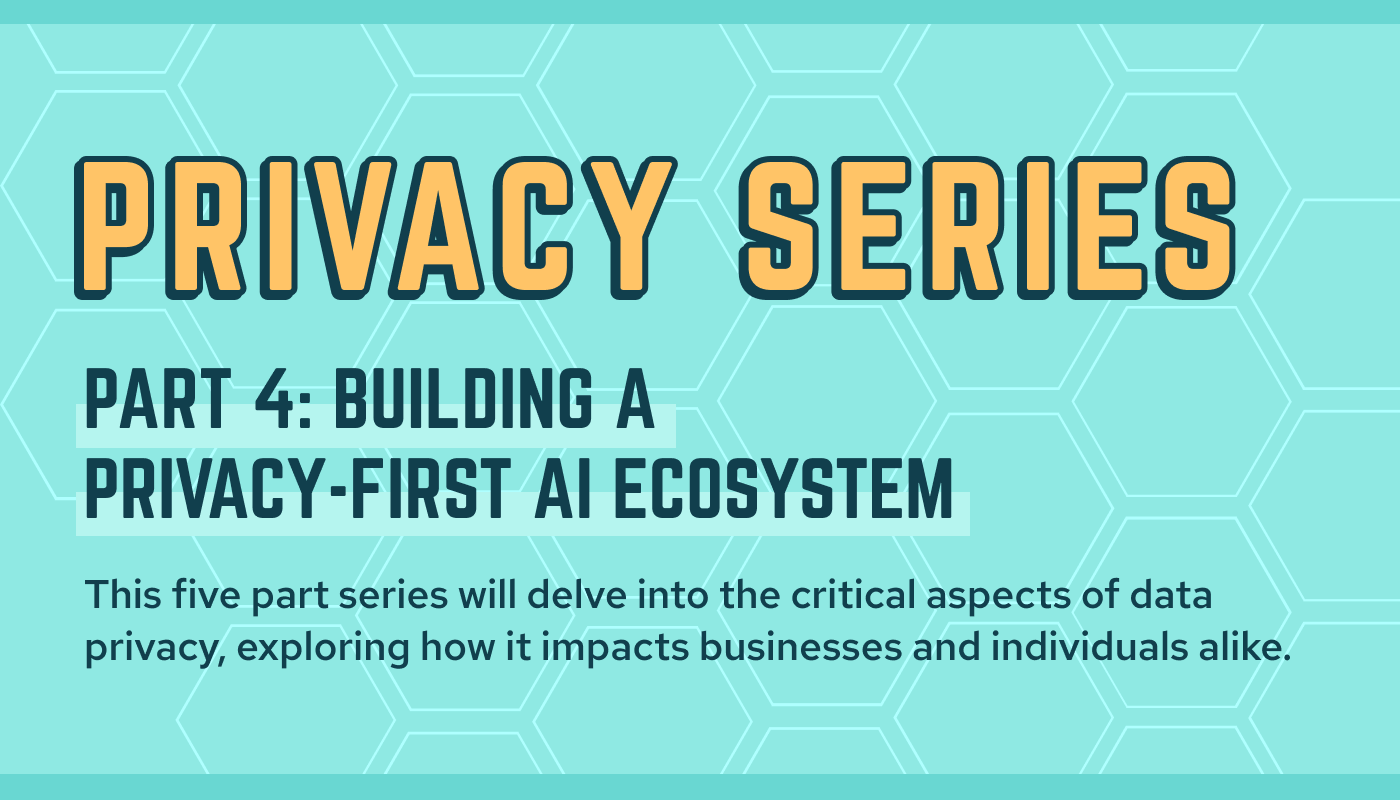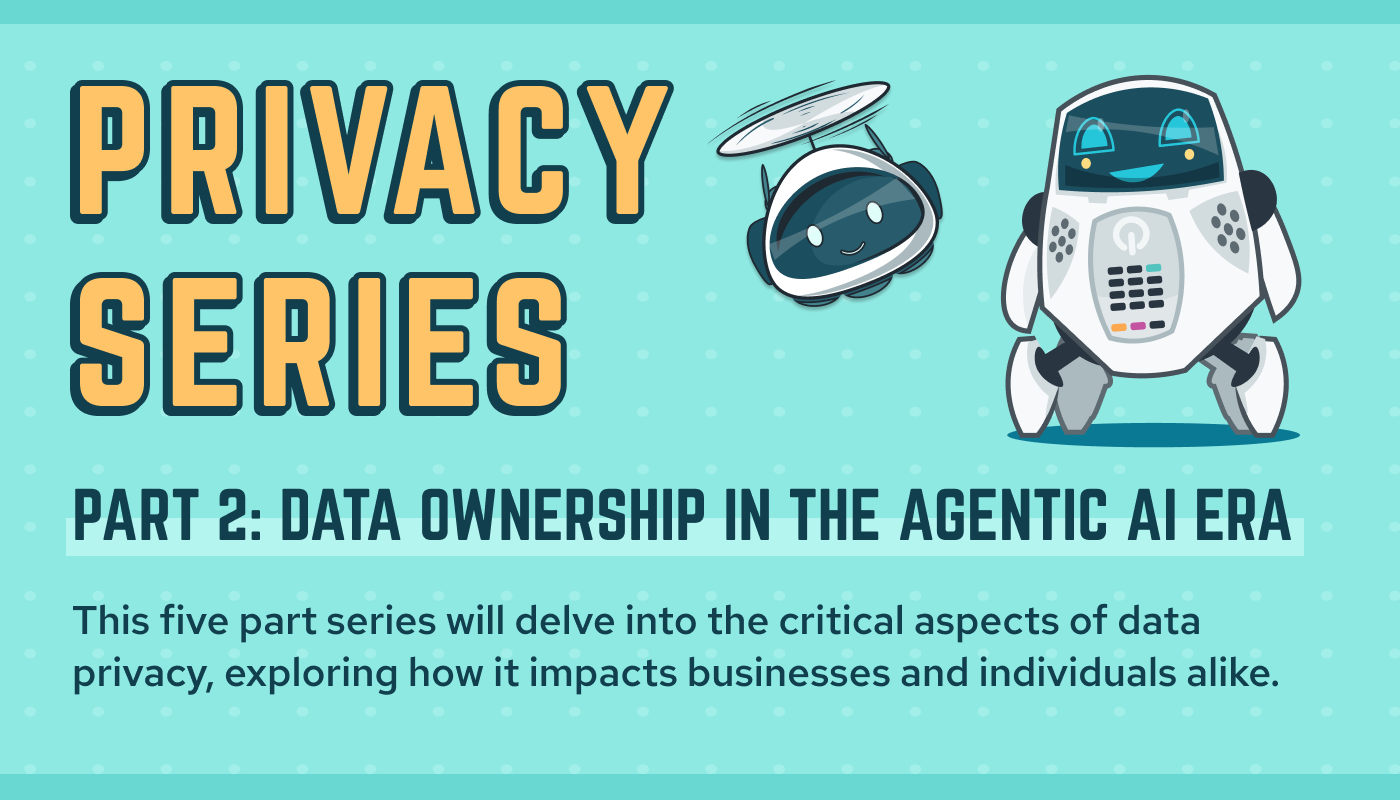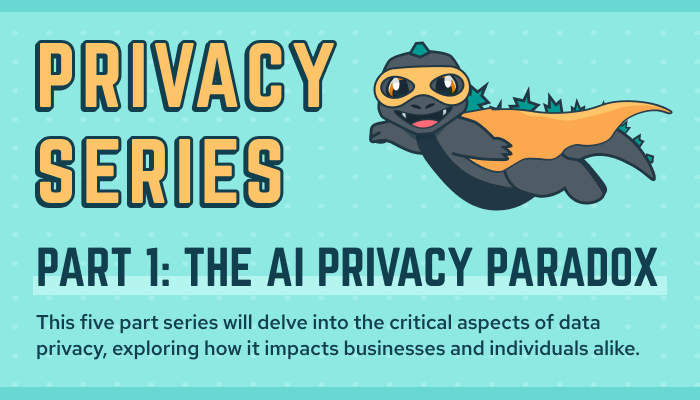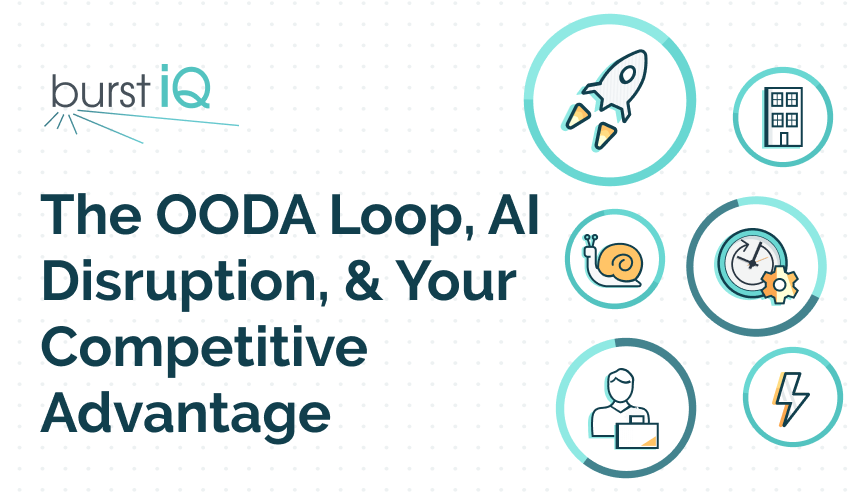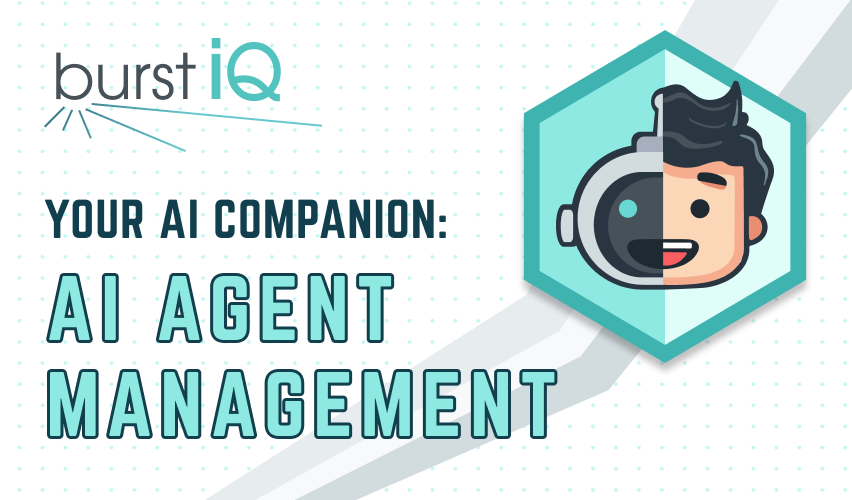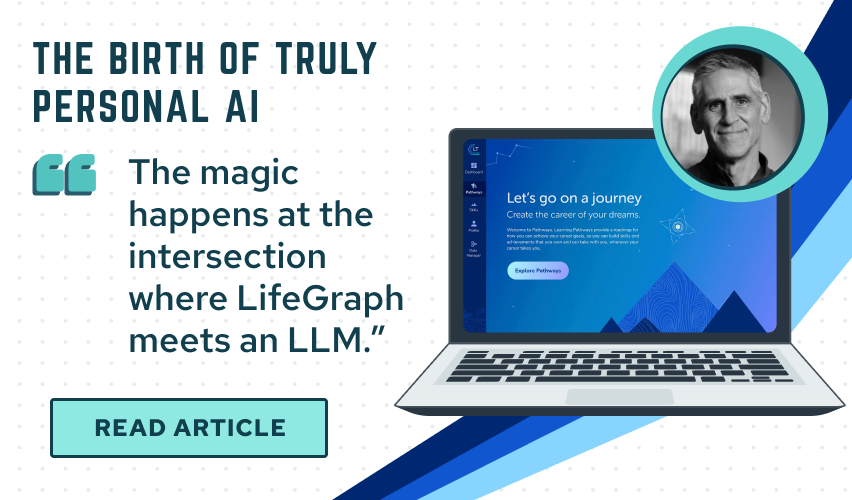
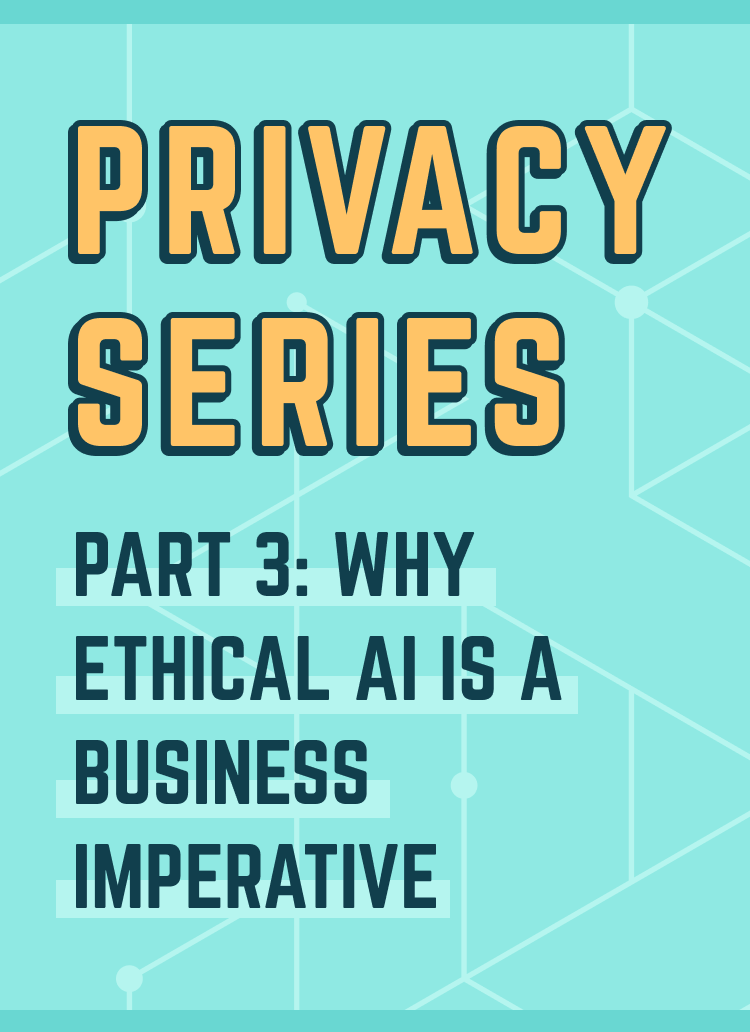
The Trust Economy:
Why Ethical AI is a Business Imperative
Trust is no longer a nebulous concept, it’s a tangible currency, the foundation of relationships between enterprises, customers, regulators, and even the AI systems themselves.
For businesses in regulated industries, trust has become a critical factor in determining success. It’s no longer enough to innovate. Business leaders must also ensure their AI systems are responsible, ethical, and transparent.
The stakes are high. A single breach of trust can erode years of progress and millions of dollars in investments, whether it’s the result of a data mishandling incident, a biased algorithm, or a failure to comply with evolving regulations. Enterprises that fail to uphold trust in their AI systems risk not only regulatory scrutiny but also losing the confidence of their customers and partners. On the other hand, those that commit to ethical AI practices will thrive in the trust economy.
This new economic reality rewards businesses prioritizing transparency, accountability, and fairness in their AI systems. For enterprises navigating highly regulated industries, embracing ethical AI is no longer an afterthought, it’s a business imperative.
The Forces Driving the Trust Economy
The emergence of the trust economy has been fueled by several converging factors that are reshaping how businesses interact with customers, regulators, and society at large.
TRUST INSIGHT: Trust isn’t just a value; it’s your most valuable asset. In the trust economy, businesses investing in ethical AI will gain a competitive edge far beyond compliance.
Customer expectations have shifted dramatically. Today’s customers are more informed than ever about how their data is collected, stored, and utilized. They are no longer passive participants in the AI ecosystem; they are active stakeholders who demand transparency and control.
Customers want to know how their data is being used and expect companies to prioritize their privacy. When customers feel trust is broken, the consequences are immediate and often irreversible.
For example, Apple has built its reputation on privacy-first features like App Tracking Transparency, which empowers users to control how their data is shared. This approach aligns with customer values and elevates Apple’s brand in the trust economy, creating loyalty in a competitive market.
Second, regulators worldwide are stepping in to enforce greater accountability. Governments are implementing stricter privacy laws, such as GDPR in Europe, CCPA in California, and HIPAA in the U.S. healthcare industry. These regulations are designed to ensure that businesses uphold ethical standards when developing and deploying AI systems.
For enterprises, this means that compliance is no longer optional; it’s mandatory. Regulations are only becoming more rigorous, and enterprises must be proactive in aligning their AI systems with these evolving standards.
TRUST INSIGHT: Compliance is the floor, not the ceiling. Enterprises that embrace transparency and accountability today will shape the regulatory landscape tomorrow.
Ultimately, the proliferation of high-profile ethical AI failures has brought the issue of trust to the forefront of public attention. From biased hiring algorithms to intrusive surveillance systems, these failures underscore the risks of overlooking AI’s ethical implications. Enterprises that align their AI strategies with transparency and fairness not only avoid these pitfalls but also position themselves as leaders in a volatile and competitive environment.
The Cost of Losing Trust
The cost of broken trust is immense, both financially and reputationally. For enterprises that fail to prioritize ethical AI, the consequences can ripple across every aspect of their business.
Financially, the risks are as clear as they are devastating. Recent GDPR penalties have demonstrated that regulatory fines for non-compliance with privacy laws can reach hundreds of millions. Beyond fines, losing customer trust directly translates into declining revenue. Customers who feel their privacy has been violated quickly disengage, and studies show that most will never return.
The reputational damage caused by a loss of trust can be even harder to repair. When news of an AI-related failure spreads, whether it’s a data breach, a biased algorithm, or a lack of transparency, it can go viral in minutes, amplifying the negative impact. Enterprises that fail to act swiftly and decisively to address these issues risk being defined by their failures.
TRUST INSIGHT: Trust takes years to build but only seconds to destroy. In the trust economy, the cost of failure is higher than ever—but so are the rewards for getting it right.
The most significant cost of losing trust is the loss of competitive advantage. In today’s marketplace, trust is often the key differentiator between enterprises. Customers are more likely to choose businesses that align with their values and demonstrate a commitment to ethical practices. Enterprises that fail to prioritize trust risk losing market share to competitors who do.
The Solution: Ethical AI as a Foundation for Trust
For enterprises navigating the trust economy, ethical AI offers a path forward. But what exactly does Ethical AI mean?
At its core, Ethical AI refers to the development and deployment of artificial intelligence systems designed to prioritize fairness, accountability, transparency, and privacy. It’s about creating AI systems that do more than just meet technical requirements; they align with human values and societal norms.
Specifically, Ethical AI ensures systems are free from harmful bias, respect individual rights, and operate transparently. It also involves a commitment to accountability, where businesses take responsibility for the outcomes of their AI systems, whether intended or unintended. Ethical AI isn’t just a set of guidelines; it’s a mindset—a way of thinking about AI not as a tool to exploit, but as a partner in creating positive, meaningful change.
TRUST INSIGHT: The future of AI isn’t just about technology—it’s about trust. Ethical AI is the key to unlocking innovation in a way that resonates with customers, regulators, and society.
Building trust through ethical AI starts with privacy. Privacy must be treated as a foundational principle, embedded into every stage of the AI lifecycle. This means collecting only the data that is absolutely necessary, anonymizing sensitive information, and designing systems that comply with regulations from the ground up. Privacy-by-design is not a limitation; it’s a catalyst for building trust. When customers feel confident that their data is secure, they are more likely to share it, enabling enterprises to deliver better, more personalized experiences.
Transparency is equally critical. Enterprises must be transparent and honest about how their AI systems operate, what data is being used, and how decisions are made. This requires clear communication—not just with regulators but also with customers and employees. Transparency doesn’t just protect against backlash, it fosters a culture of accountability that resonates with stakeholders and builds trust over time.
Equally important is the need for enterprises to establish and uphold ethical AI principles. These principles should include commitments to fairness, ensuring that AI systems do not perpetuate bias or discrimination; accountability, creating processes for auditing and improving systems over time; and transparency, making data use and decision-making processes visible and understandable.
BurstIQ’s Approach: Trust as a Foundation for Innovation
At BurstIQ, we believe that trust is the cornerstone of the AI-driven future. Our LifeGraph® platform is designed to help enterprises build trust-driven AI systems that align with ethical principles and regulatory requirements. By leveraging the trust and security of blockchain and combining it with decentralizing data ownership, LifeGraph empowers individuals to control their data while enabling enterprises to innovate responsibly.
LifeGraph ensures transparency at every step, giving enterprises the tools to demonstrate compliance with privacy regulations and ethical standards. This approach fosters trust and collaboration among businesses, customers, and regulators.
For enterprises operating in the trust economy, platforms like LifeGraph offer a blueprint for success.
Final Thought: Trust is the Future of AI
In the trust economy, ethical AI is no longer optional; it’s essential. Enterprises that prioritize trust through privacy-by-design, transparency, and accountability will thrive in the AI-driven future.
TRUST INSIGHT: Trust isn’t just the foundation for ethical AI—it’s the foundation for long-term business success. In the AI age, trust is the most valuable currency you can offer.
The question isn’t whether trust matters; it’s how your enterprise will build it.
Be sure to check out part 1 and part 2 of our five-part series on data privacy. Stay tuned as we delve into the critical aspects of data privacy, exploring how it impacts businesses and individuals alike.
To stay updated and ensure you don’t miss any of the upcoming articles, be sure to follow us on LinkedIn. Join us on this journey as we navigate the complexities of data privacy together!
The Trust Economy:
Why Ethical AI is a Business Imperative
Trust is no longer a nebulous concept, it’s a tangible currency, the foundation of relationships between enterprises, customers, regulators, and even the AI systems themselves.
For businesses in regulated industries, trust has become a critical factor in determining success. It’s no longer enough to innovate. Business leaders must also ensure their AI systems are responsible, ethical, and transparent.
The stakes are high. A single breach of trust can erode years of progress and millions of dollars in investments, whether it’s the result of a data mishandling incident, a biased algorithm, or a failure to comply with evolving regulations. Enterprises that fail to uphold trust in their AI systems risk not only regulatory scrutiny but also losing the confidence of their customers and partners. On the other hand, those that commit to ethical AI practices will thrive in the trust economy.
This new economic reality rewards businesses prioritizing transparency, accountability, and fairness in their AI systems. For enterprises navigating highly regulated industries, embracing ethical AI is no longer an afterthought, it’s a business imperative.
The Forces Driving the Trust Economy
The emergence of the trust economy has been fueled by several converging factors that are reshaping how businesses interact with customers, regulators, and society at large.
TRUST INSIGHT: Trust isn’t just a value; it’s your most valuable asset. In the trust economy, businesses investing in ethical AI will gain a competitive edge far beyond compliance.
Customer expectations have shifted dramatically. Today’s customers are more informed than ever about how their data is collected, stored, and utilized. They are no longer passive participants in the AI ecosystem; they are active stakeholders who demand transparency and control.
Customers want to know how their data is being used and expect companies to prioritize their privacy. When customers feel trust is broken, the consequences are immediate and often irreversible.
For example, Apple has built its reputation on privacy-first features like App Tracking Transparency, which empowers users to control how their data is shared. This approach aligns with customer values and elevates Apple’s brand in the trust economy, creating loyalty in a competitive market.
Second, regulators worldwide are stepping in to enforce greater accountability. Governments are implementing stricter privacy laws, such as GDPR in Europe, CCPA in California, and HIPAA in the U.S. healthcare industry. These regulations are designed to ensure that businesses uphold ethical standards when developing and deploying AI systems.
For enterprises, this means that compliance is no longer optional; it’s mandatory. Regulations are only becoming more rigorous, and enterprises must be proactive in aligning their AI systems with these evolving standards.
TRUST INSIGHT: Compliance is the floor, not the ceiling. Enterprises that embrace transparency and accountability today will shape the regulatory landscape tomorrow.
Ultimately, the proliferation of high-profile ethical AI failures has brought the issue of trust to the forefront of public attention. From biased hiring algorithms to intrusive surveillance systems, these failures underscore the risks of overlooking AI’s ethical implications. Enterprises that align their AI strategies with transparency and fairness not only avoid these pitfalls but also position themselves as leaders in a volatile and competitive environment.
The Cost of Losing Trust
The cost of broken trust is immense, both financially and reputationally. For enterprises that fail to prioritize ethical AI, the consequences can ripple across every aspect of their business.
Financially, the risks are as clear as they are devastating. Recent GDPR penalties have demonstrated that regulatory fines for non-compliance with privacy laws can reach hundreds of millions. Beyond fines, losing customer trust directly translates into declining revenue. Customers who feel their privacy has been violated quickly disengage, and studies show that most will never return.
The reputational damage caused by a loss of trust can be even harder to repair. When news of an AI-related failure spreads, whether it’s a data breach, a biased algorithm, or a lack of transparency, it can go viral in minutes, amplifying the negative impact. Enterprises that fail to act swiftly and decisively to address these issues risk being defined by their failures.
TRUST INSIGHT: Trust takes years to build but only seconds to destroy. In the trust economy, the cost of failure is higher than ever—but so are the rewards for getting it right.
The most significant cost of losing trust is the loss of competitive advantage. In today’s marketplace, trust is often the key differentiator between enterprises. Customers are more likely to choose businesses that align with their values and demonstrate a commitment to ethical practices. Enterprises that fail to prioritize trust risk losing market share to competitors who do.
The Solution: Ethical AI as a Foundation for Trust
For enterprises navigating the trust economy, ethical AI offers a path forward. But what exactly does Ethical AI mean?
At its core, Ethical AI refers to the development and deployment of artificial intelligence systems designed to prioritize fairness, accountability, transparency, and privacy. It’s about creating AI systems that do more than just meet technical requirements; they align with human values and societal norms.
Specifically, Ethical AI ensures systems are free from harmful bias, respect individual rights, and operate transparently. It also involves a commitment to accountability, where businesses take responsibility for the outcomes of their AI systems, whether intended or unintended. Ethical AI isn’t just a set of guidelines; it’s a mindset—a way of thinking about AI not as a tool to exploit, but as a partner in creating positive, meaningful change.
TRUST INSIGHT: The future of AI isn’t just about technology—it’s about trust. Ethical AI is the key to unlocking innovation in a way that resonates with customers, regulators, and society.
Building trust through ethical AI starts with privacy. Privacy must be treated as a foundational principle, embedded into every stage of the AI lifecycle. This means collecting only the data that is absolutely necessary, anonymizing sensitive information, and designing systems that comply with regulations from the ground up. Privacy-by-design is not a limitation; it’s a catalyst for building trust. When customers feel confident that their data is secure, they are more likely to share it, enabling enterprises to deliver better, more personalized experiences.
Transparency is equally critical. Enterprises must be transparent and honest about how their AI systems operate, what data is being used, and how decisions are made. This requires clear communication—not just with regulators but also with customers and employees. Transparency doesn’t just protect against backlash, it fosters a culture of accountability that resonates with stakeholders and builds trust over time.
Equally important is the need for enterprises to establish and uphold ethical AI principles. These principles should include commitments to fairness, ensuring that AI systems do not perpetuate bias or discrimination; accountability, creating processes for auditing and improving systems over time; and transparency, making data use and decision-making processes visible and understandable.
BurstIQ’s Approach: Trust as a Foundation for Innovation
At BurstIQ, we believe that trust is the cornerstone of the AI-driven future. Our LifeGraph® platform is designed to help enterprises build trust-driven AI systems that align with ethical principles and regulatory requirements. By leveraging the trust and security of blockchain and combining it with decentralizing data ownership, LifeGraph empowers individuals to control their data while enabling enterprises to innovate responsibly.
LifeGraph ensures transparency at every step, giving enterprises the tools to demonstrate compliance with privacy regulations and ethical standards. This approach fosters trust and collaboration among businesses, customers, and regulators.
For enterprises operating in the trust economy, platforms like LifeGraph offer a blueprint for success.
Final Thought: Trust is the Future of AI
In the trust economy, ethical AI is no longer optional; it’s essential. Enterprises that prioritize trust through privacy-by-design, transparency, and accountability will thrive in the AI-driven future.
TRUST INSIGHT: Trust isn’t just the foundation for ethical AI—it’s the foundation for long-term business success. In the AI age, trust is the most valuable currency you can offer.
The question isn’t whether trust matters; it’s how your enterprise will build it.
Be sure to check out part 1 and part 2 of our five-part series on data privacy. Stay tuned as we delve into the critical aspects of data privacy, exploring how it impacts businesses and individuals alike.
To stay updated and ensure you don’t miss any of the upcoming articles, be sure to follow us on LinkedIn. Join us on this journey as we navigate the complexities of data privacy together!
The Trust Economy:
Why Ethical AI is a Business Imperative
Trust is no longer a nebulous concept, it’s a tangible currency, the foundation of relationships between enterprises, customers, regulators, and even the AI systems themselves.
For businesses in regulated industries, trust has become a critical factor in determining success. It’s no longer enough to innovate. Business leaders must also ensure their AI systems are responsible, ethical, and transparent.
The stakes are high. A single breach of trust can erode years of progress and millions of dollars in investments, whether it’s the result of a data mishandling incident, a biased algorithm, or a failure to comply with evolving regulations. Enterprises that fail to uphold trust in their AI systems risk not only regulatory scrutiny but also losing the confidence of their customers and partners. On the other hand, those that commit to ethical AI practices will thrive in the trust economy.
This new economic reality rewards businesses prioritizing transparency, accountability, and fairness in their AI systems. For enterprises navigating highly regulated industries, embracing ethical AI is no longer an afterthought, it’s a business imperative.
The Forces Driving the Trust Economy
The emergence of the trust economy has been fueled by several converging factors that are reshaping how businesses interact with customers, regulators, and society at large.
TRUST INSIGHT: Trust isn’t just a value; it’s your most valuable asset. In the trust economy, businesses investing in ethical AI will gain a competitive edge far beyond compliance.
Customer expectations have shifted dramatically. Today’s customers are more informed than ever about how their data is collected, stored, and utilized. They are no longer passive participants in the AI ecosystem; they are active stakeholders who demand transparency and control.
Customers want to know how their data is being used and expect companies to prioritize their privacy. When customers feel trust is broken, the consequences are immediate and often irreversible.
For example, Apple has built its reputation on privacy-first features like App Tracking Transparency, which empowers users to control how their data is shared. This approach aligns with customer values and elevates Apple’s brand in the trust economy, creating loyalty in a competitive market.
Second, regulators worldwide are stepping in to enforce greater accountability. Governments are implementing stricter privacy laws, such as GDPR in Europe, CCPA in California, and HIPAA in the U.S. healthcare industry. These regulations are designed to ensure that businesses uphold ethical standards when developing and deploying AI systems.
For enterprises, this means that compliance is no longer optional; it’s mandatory. Regulations are only becoming more rigorous, and enterprises must be proactive in aligning their AI systems with these evolving standards.
TRUST INSIGHT: Compliance is the floor, not the ceiling. Enterprises that embrace transparency and accountability today will shape the regulatory landscape tomorrow.
Ultimately, the proliferation of high-profile ethical AI failures has brought the issue of trust to the forefront of public attention. From biased hiring algorithms to intrusive surveillance systems, these failures underscore the risks of overlooking AI’s ethical implications. Enterprises that align their AI strategies with transparency and fairness not only avoid these pitfalls but also position themselves as leaders in a volatile and competitive environment.
The Cost of Losing Trust
The cost of broken trust is immense, both financially and reputationally. For enterprises that fail to prioritize ethical AI, the consequences can ripple across every aspect of their business.
Financially, the risks are as clear as they are devastating. Recent GDPR penalties have demonstrated that regulatory fines for non-compliance with privacy laws can reach hundreds of millions. Beyond fines, losing customer trust directly translates into declining revenue. Customers who feel their privacy has been violated quickly disengage, and studies show that most will never return.
The reputational damage caused by a loss of trust can be even harder to repair. When news of an AI-related failure spreads, whether it’s a data breach, a biased algorithm, or a lack of transparency, it can go viral in minutes, amplifying the negative impact. Enterprises that fail to act swiftly and decisively to address these issues risk being defined by their failures.
TRUST INSIGHT: Trust takes years to build but only seconds to destroy. In the trust economy, the cost of failure is higher than ever—but so are the rewards for getting it right.
The most significant cost of losing trust is the loss of competitive advantage. In today’s marketplace, trust is often the key differentiator between enterprises. Customers are more likely to choose businesses that align with their values and demonstrate a commitment to ethical practices. Enterprises that fail to prioritize trust risk losing market share to competitors who do.
The Solution: Ethical AI as a Foundation for Trust
For enterprises navigating the trust economy, ethical AI offers a path forward. But what exactly does Ethical AI mean?
At its core, Ethical AI refers to the development and deployment of artificial intelligence systems designed to prioritize fairness, accountability, transparency, and privacy. It’s about creating AI systems that do more than just meet technical requirements; they align with human values and societal norms.
Specifically, Ethical AI ensures systems are free from harmful bias, respect individual rights, and operate transparently. It also involves a commitment to accountability, where businesses take responsibility for the outcomes of their AI systems, whether intended or unintended. Ethical AI isn’t just a set of guidelines; it’s a mindset—a way of thinking about AI not as a tool to exploit, but as a partner in creating positive, meaningful change.
TRUST INSIGHT: The future of AI isn’t just about technology—it’s about trust. Ethical AI is the key to unlocking innovation in a way that resonates with customers, regulators, and society.
Building trust through ethical AI starts with privacy. Privacy must be treated as a foundational principle, embedded into every stage of the AI lifecycle. This means collecting only the data that is absolutely necessary, anonymizing sensitive information, and designing systems that comply with regulations from the ground up. Privacy-by-design is not a limitation; it’s a catalyst for building trust. When customers feel confident that their data is secure, they are more likely to share it, enabling enterprises to deliver better, more personalized experiences.
Transparency is equally critical. Enterprises must be transparent and honest about how their AI systems operate, what data is being used, and how decisions are made. This requires clear communication—not just with regulators but also with customers and employees. Transparency doesn’t just protect against backlash, it fosters a culture of accountability that resonates with stakeholders and builds trust over time.
Equally important is the need for enterprises to establish and uphold ethical AI principles. These principles should include commitments to fairness, ensuring that AI systems do not perpetuate bias or discrimination; accountability, creating processes for auditing and improving systems over time; and transparency, making data use and decision-making processes visible and understandable.
BurstIQ’s Approach: Trust as a Foundation for Innovation
At BurstIQ, we believe that trust is the cornerstone of the AI-driven future. Our LifeGraph® platform is designed to help enterprises build trust-driven AI systems that align with ethical principles and regulatory requirements. By leveraging the trust and security of blockchain and combining it with decentralizing data ownership, LifeGraph empowers individuals to control their data while enabling enterprises to innovate responsibly.
LifeGraph ensures transparency at every step, giving enterprises the tools to demonstrate compliance with privacy regulations and ethical standards. This approach fosters trust and collaboration among businesses, customers, and regulators.
For enterprises operating in the trust economy, platforms like LifeGraph offer a blueprint for success.
Final Thought: Trust is the Future of AI
In the trust economy, ethical AI is no longer optional; it’s essential. Enterprises that prioritize trust through privacy-by-design, transparency, and accountability will thrive in the AI-driven future.
TRUST INSIGHT: Trust isn’t just the foundation for ethical AI—it’s the foundation for long-term business success. In the AI age, trust is the most valuable currency you can offer.
The question isn’t whether trust matters; it’s how your enterprise will build it.
Be sure to check out part 1 and part 2 of our five-part series on data privacy. Stay tuned as we delve into the critical aspects of data privacy, exploring how it impacts businesses and individuals alike.
To stay updated and ensure you don’t miss any of the upcoming articles, be sure to follow us on LinkedIn. Join us on this journey as we navigate the complexities of data privacy together!
